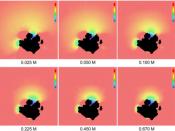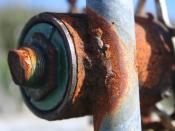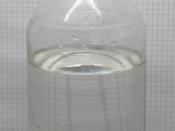Plan
I have to investigate the factors that affect a chemical reaction:
Calcium Carbonate + Hydrochloric Acid
Calcium Chloride + Carbon Dioxide
The easiest way to determine a change in the reaction is how much carbon dioxide is given off during the reaction.
The variables that affect this reaction are:
稴urface Area
稢atalyst
稢oncentration of Hydrochloric Acid
稵emperature
With the help of 'Chemistry in Context' by G. Hill and J. Holman I already
know the following information.
During a chemical reaction the reactants are converted to products. The reaction rate tells us how fast the reaction is taking place by indicating how much of a reactant is consumed or how much of a product forms in a given time. For example:
Reaction rate= change in amount (or concentration) of a substance
Time taken
This reaction rate can be seen as the rate of change of amount or concentration of a certain reactant or product.
Normally reaction rates are expressed in moles of dm- s- or in mole s- as this is convenient. However, it is more convenient to use minutes as the unit of time as it is easier to work out.
Biological reactions rely on the presence of catalysts. One or more catalysts control almost every chemical reaction in your body. Catalysts are involved in simple reactions like the hydrolysis of starch to sugars. They are also involved in highly complex reactions like the replication of DNA, which forms the genes in the nuclei of cells. These are called enzymes.
Temperature affects chemical reactions also, because as the temperature rises the average speed of reacting particles increases. There will be more collisions per second if the temperature is high, resulting in an increase in the rate of reaction. This Collision Theory links to the Kinetic Theory, which can be...


